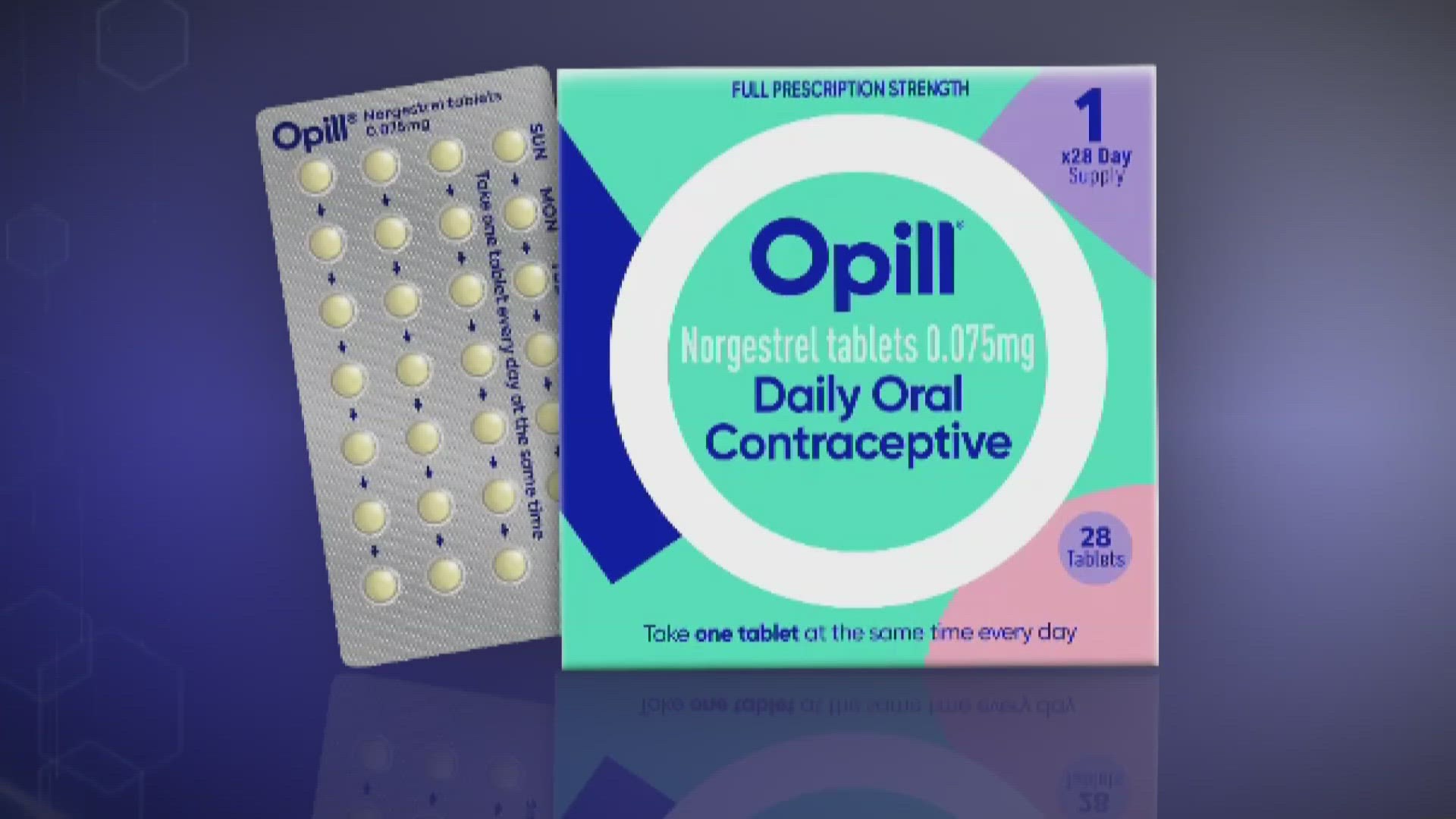NEW ORLEANS — The first over-the-counter birth control pill for women is now approved for sale in the U.S.
It will be available in drug stores and even grocery stores, but not until the beginning of next year.
For details on the over-the-counter birth control pill for women, we turned to Tulane OB-GYN Dr. Sam Alexander.
Many prescription pills have a combination of two female hormones, estrogen and progesterone. Some don't.
"We do have prescription progesterone-only pills. We write those frequently for people who, let’s say, can't take estrogen, or for those specifically like lactating patients,” Dr. Alexander said.
The new Opill will only have progesterone, the hormone that prevents ovulation. So, with no egg released, there will be no conception.
Next, most pill packs have inert, or sugar pills, for up to a week to allow for a period. The new one won't.
“And so with an all progesterone birth control pills, with no days off, the person shouldn't have any menstrual cycles.”
That's called continuous cycling. For years doctors have used prescription pills the same way, having women skip the inert pills and therefore their periods.
It's for all reproductive ages, but there are reasons to check with a doctor.
“If we had an adolescent who is having bleeding issues, this would probably not be our first choice of contraceptives to help regulate their cycles," he explained.
Its convenience should not mean skipping annual wellness visits.
“That is a concern that we have, and we encourage our patients to come in for that, have their breast exam, have a pap smear, or screening for STDs.”
The OB-GYN can also discuss possible side effects, common with most oral contraceptives.
“May have some breakthrough bleeding. They may have some acne associated with this, maybe have a little bit of weight gain, but there really shouldn't be a significant amount,” said Dr. Alexander.
The mini pill is 93 percent effective, while most pills are 99.1 percent effective. And Opill must be taken at the same time every day. If you are more than three hours off, backup contraception has to be used for two days.
Both the American Medical Association and the American College of OB-GYNS are in favor of this move.
With most insurance plans there is no out-of-pocket costs with prescription pills.
Medicaid is not required to cover over-the-counter medication. Private insurance must cover over-the-counter birth control only when there's a prescription.
► Get breaking news from your neighborhood delivered directly to you by downloading the new FREE WWL-TV News app now in the IOS App Store or Google Play.

